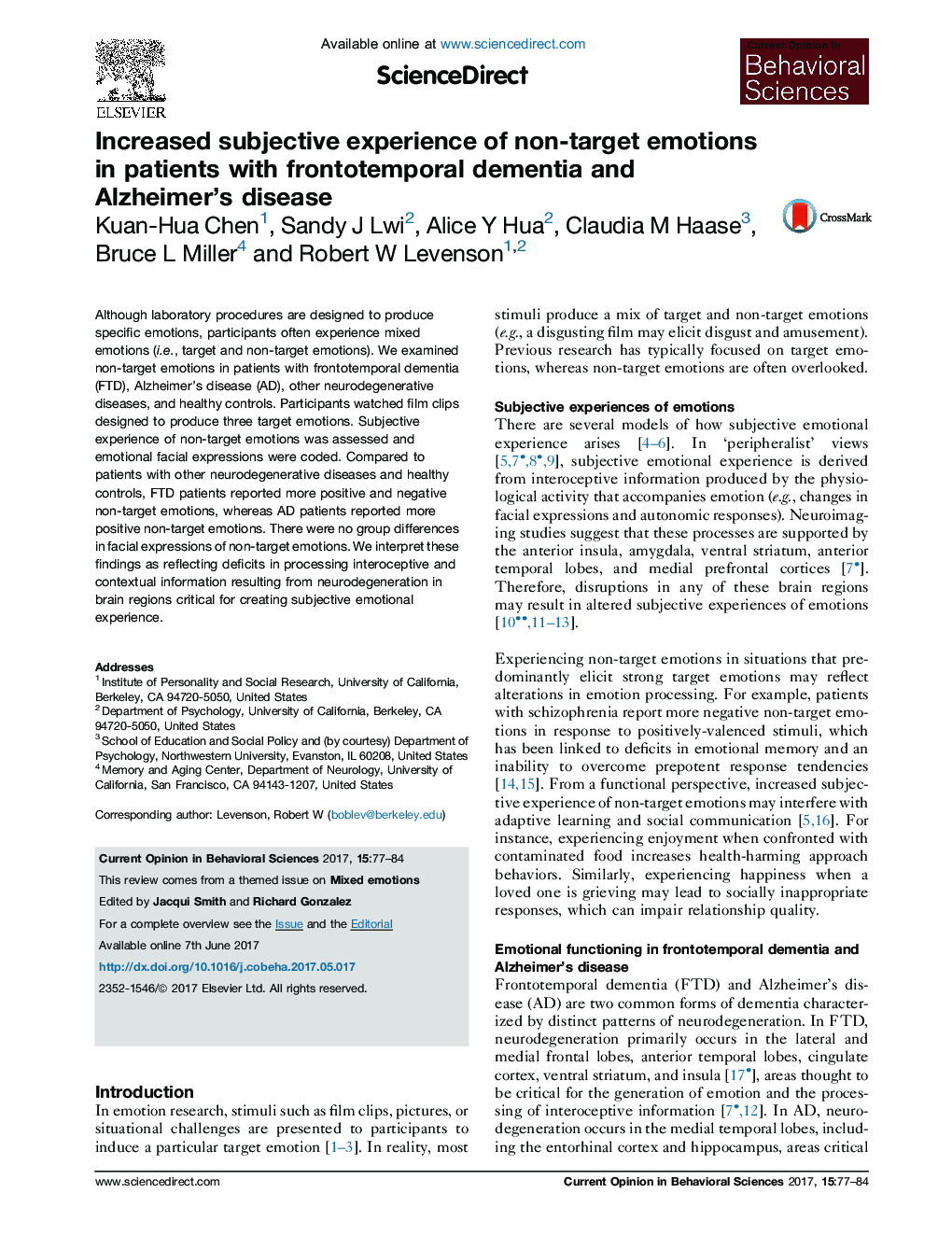| Article ID | Journal | Published Year | Pages | File Type |
|---|---|---|---|---|
| 5735752 | Current Opinion in Behavioral Sciences | 2017 | 8 Pages |
Abstract
Although laboratory procedures are designed to produce specific emotions, participants often experience mixed emotions (i.e., target and non-target emotions). We examined non-target emotions in patients with frontotemporal dementia (FTD), Alzheimer's disease (AD), other neurodegenerative diseases, and healthy controls. Participants watched film clips designed to produce three target emotions. Subjective experience of non-target emotions was assessed and emotional facial expressions were coded. Compared to patients with other neurodegenerative diseases and healthy controls, FTD patients reported more positive and negative non-target emotions, whereas AD patients reported more positive non-target emotions. There were no group differences in facial expressions of non-target emotions. We interpret these findings as reflecting deficits in processing interoceptive and contextual information resulting from neurodegeneration in brain regions critical for creating subjective emotional experience.
Related Topics
Life Sciences
Neuroscience
Behavioral Neuroscience
Authors
Kuan-Hua Chen, Sandy J Lwi, Alice Y Hua, Claudia M Haase, Bruce L Miller, Robert W Levenson,
